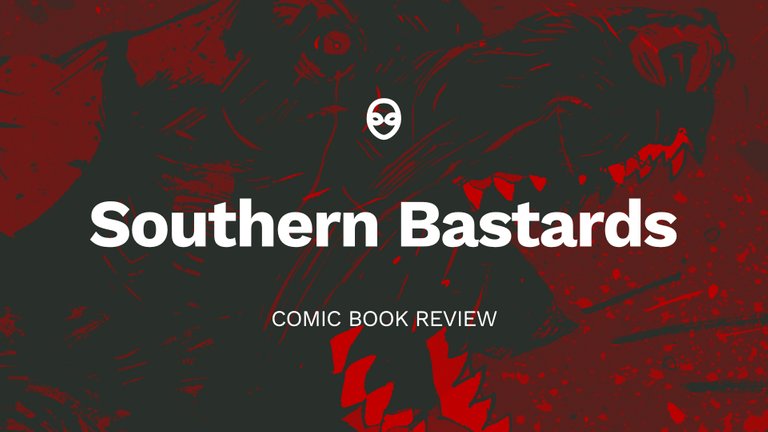
This post covers volumes 1-3 of Southern Bastards and doesn’t contain any spoilers.
Evangelical signage rise out from the roadside rushes hoping to lure passers-by into a redemptive life while a dog unceremoniously watches as excrement fall from his backside onto the ground with a plop. It doesn’t take long for the canine toilet habits to become interrupted as a truck whizzes by containing an older gentleman driving while struggling to maintain cellphone signal. The dog responds as any of us would if our ablutions were interrupted; barking at the person with anger and frustration.
As the mysterious old character makes his way through a seemingly familiar small town he arrives at his destination where he’s greeted by an empty family home and violent flashbacks. As the man revisits vacant rooms with busy memories, a story plays out showing his father’s heroic stand, one that gained press coverage and broken bones.
The next day as our stranger tries to enjoy a hearty ribs lunch, he’s recognised by a local as Earl Tubb, a famous Defensive End for the beloved state football team, the Runnin Rebs. In an awkward exchange between the two characters it’s revealed that Tubb is the son of the old town Sheriff who is not only renowned for the event that happened at the Tubb family home, but so is the weapon that was used. It’s only at the end of this exchange that Dusty, the cringe-inducing local, finally warns Earl to get out of town “as fast as he damn well can.”
Deep South
Southern Bastards is written by Jason Aaron and Jason Latour. Both hailing from the South, Aaron from Jasper Alabama and Latour from Charlotte Carolina, they wrote this story as an ode to the schizophrenic relationship with their homes. It’s telling how both guys simultaneously love and hate the place. Beaming with pride over their Southern roots they also both state their fear and hatred towards a primal, senseless and violent mentality that can also be present in that part of the world, and that aspect comes through in their storytelling.
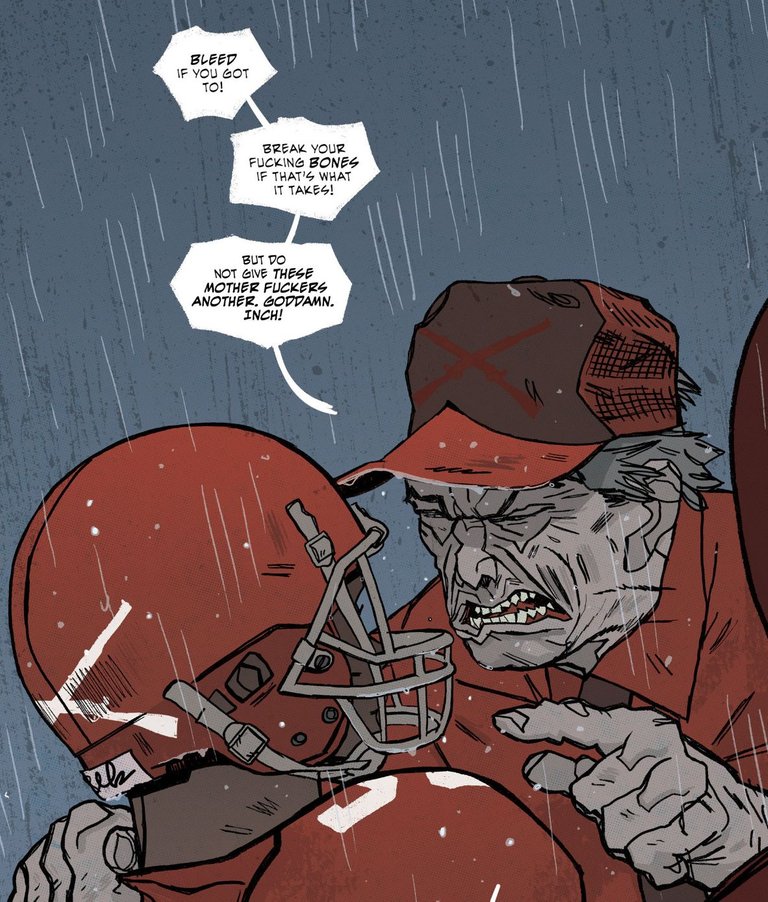
They use the town Football team as the lifeblood of the story for characters past and present. Flashbacks show the how events from way back have influenced lives all across town. Careers were made, lives were lost and so were relationships, but at the heart of all this is a character named Boss. A hardy soul whose fortunes, or lack thereof, aren’t as straightforward as they seem. The Jasons do a fantastic job of showing character progression but not necessarily in the expected order, which makes for a compelling narrative.
The citizen mentality is projected perfectly as characters interact with a certain shadiness while referencing others off-panel with a tonal wash of small-town gossip. Fear is ever-present as lives are conducted in the shadow of threat, and in one case a life of promise disintegrates as a consequence of having too many prospects.
Tumbleweeds
For me, not all is perfect in the South as I did find myself disconnecting slightly from the narrative. Coming from London I found it hard to connect with certain aspects of small-town America. Buying into the notion that single individuals have such a hold on an entire town, especially later in life, was something I found hard to swallow. The US is expansive and while I know it’s not particularly gripping for a story play out…people in town get bullied; people leave town; the end…I still found the lack of exodus crazy.
My doubts double-down as my interest in sports are limited. This story is heavily reliant on American Football as a driver for actions and relationships, and while I was heavily involved in team sports when I was younger, I find it hard to delve into such depths of fandom that it would affect my life in the same way as some of the characters in Craw County.
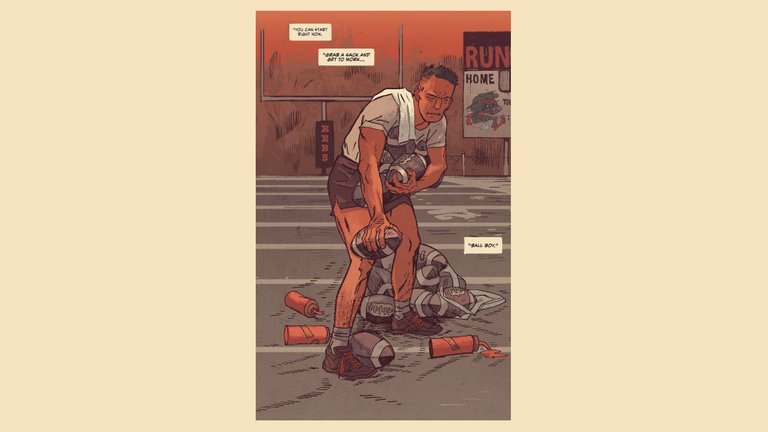
Spit and sawdust
The art is fantastic. Jason Latour masters the broken lines and abrasive textures of weather-worn, dust-scathed individuals whose craggy complexions and pitted peepers are rivalled only by that of the rough-hewn tree bark. The somewhat muted colour palette does a fantastic job of scene setting and is totally appropriate for the material but what it also does is steps out of the way when moments of intensity arise. The dial can quickly turn from serene sand to raging red in a heartbeat and as a result, punctuates dramatic moments with a demanding, vivid, take-notice bashing to the eyeballs.
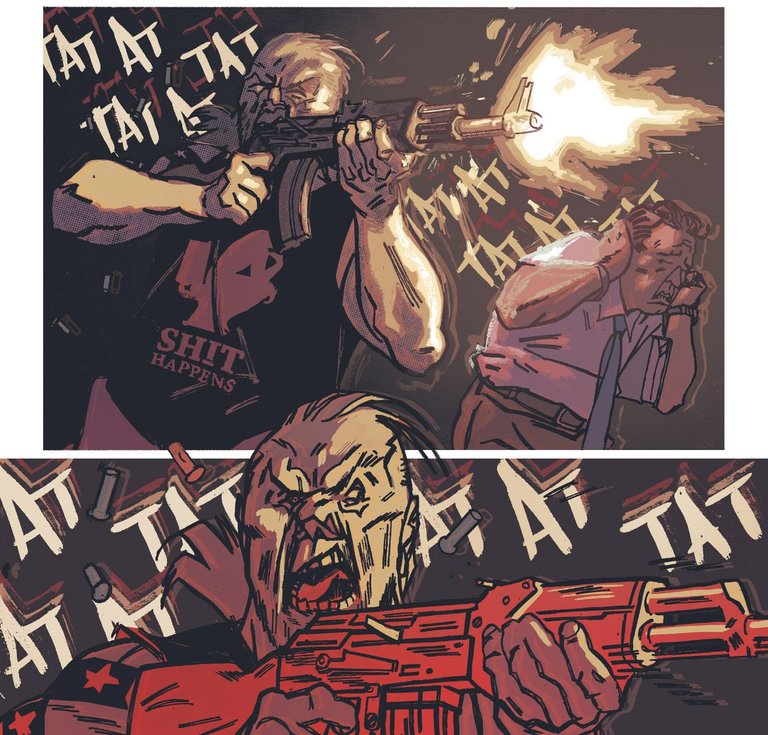
Wrap up
Southern Bastards is a fantastic exploration into southern life, told by masters with a huge affinity for the source material. The statements made in the forward are palpable in the pages that follow, and aside from the concerns I have around unrelatable situations and characters, at its core, I get it. Aaron and Latour let us into their world by painting of life in the south. Life that caused them to both love and loathe their roots by painting a picture of power, greed, and betrayal among close-knit communities. There are stark twists and turns to equal the stark landscapes in which they take place, and for anyone who fancies a deep dive into the Deep South then come and meet the Southern Bastards, just watch your back.
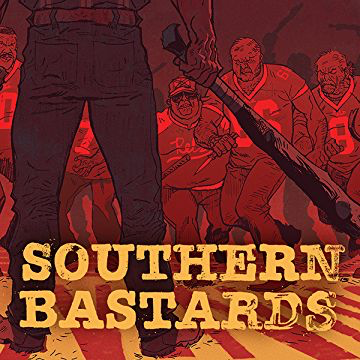
Southern Bastards Vols 1-3
| Published by | Image Comics |
| Written by | Jason Aaron |
| Art by | Jason Latour |
| Originally released | October 2014 |
You can buy Southern Bastards here (non-affiliate link).
Congratulations @mattniblock! You received a personal award!
Click here to view your Board of Honor
Do not miss the last post from @steemitboard: